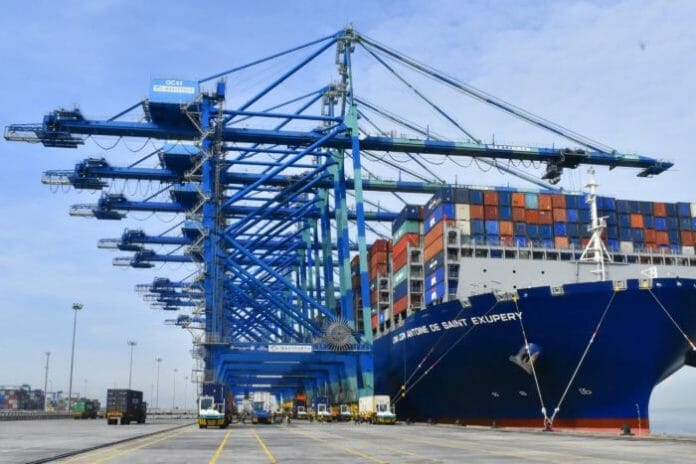Malaysia’s trade in October 2023 continued its downward trend for the 8th consecutive months since March 2023 amid slowing global demand and lower commodity prices.
The decline was a reflection of the ongoing challenges faced by Malaysia’s external sector as a result of global economic factors. Total trade fell by 2.4 per cent to RM239.5 billion ascribable to lower exports of 4.4 per cent to RM126.2 billion and imports of 0.2 per cent to RM113.3 billion, year-on-year.
Meanwhile, trade balance remained in surplus with a value of RM12.9 billion, shrank by 30.3 per cent in October 2023 as reported today (Nov 20) in Malaysia External Trade Statistics Bulletin, OCTOBER 2023 by the Department of Statistics Malaysia (DOSM).
Chief Statistician Malaysia, Dato’ Sri Dr. Mohd Uzir Mahidin said, “Malaysia’s export performance recorded a reduction in October 2023 in line with the decline by both re-exports and domestic exports. Re-exports amounted to RM29.8 billion, shrank by 2.2 per cent as compared to October 2022. Domestic exports worth RM96.4 billion, contributing 76.4 per cent to total exports dropped by 5.0 per cent. Imports in October 2023 worth RM113.3 billion, fell by 0.2 per cent as compared to the same month last year. Meanwhile, trade surplus, contracted by 30.3 per cent to RM12.9 billion, was the 42nd consecutive month of trade surplus since May 2020.
“As compared to September 2023, the performance of exports, imports and total trade recorded an increase of 1.5 per cent, 13.4 per cent and 6.8 per cent, respectively. Meanwhile, trade balance recorded a decrease of 47.2 per cent as compared to September 2023.”
From the perspective of the commodity group, 106 out of 258 export groups and 103 out of 258 import groups showed a decrease as compared to the same month of the previous year.
He explained that the slower exports was attributable to the decline mainly to Japan (-RM2.0 billion) followed by Singapore (-RM1.6 billion), China (-RM1.3 billion), Thailand (-RM1.3 billion), Togo (-RM1.2 billion), Bangladesh (-RM880.1 million) and Indonesia (-RM501.4 million).
Meanwhile, the reduction in imports was mainly contributed by Taiwan (-RM3.4 billion), followed by the United States (-RM2.4 billion), Saudi Arabia (-RM1.7 billion), Japan (-RM1.1 billion), Australia (-RM962.2 million) and Kuwait (-RM567.4 million).
The fall was in line with the drop in petroleum products (-RM4.3 billion); liquefied natural gas (-RM2.5 billion); electrical & electronic products (-RM1.2 billion); crude petroleum (-RM660.4 million) and palm oil-based manufactured products (-RM484.3 million).
Meanwhile, the contraction in imports was logged for electrical & electronic products (-RM3.7 billion); crude petroleum (-RM1.2 billion); coal, coke & briquettes (-RM866.1 million); transport equipment (-RM511.1 million) and liquefied natural gas (-RM418.5 million).
Mohd Uzir Mahidin added, “Imports by End Use deteriorated mainly from slower demand for intermediate goods with a decrease of 7.9 per cent to reach RM55.9 billion as against RM60.7 billion in the previous year. However, imports of consumption goods amounted to RM9.4 billion, posted an increase of 9.9 per cent or RM847.0 million and capital goods with a value of RM12.7 billion, rose by 8.6 per cent as compared to October 2022.”
Accordingly, total trade, exports, imports and trade surplus also showed a downward trend for the period of January to October 2023 period.
Total trade fell by 8.0 per cent, from RM2.4 trillion to RM2.2 trillion, in line with the decline in exports (-8.0%) as well as imports (-8.0%). At the same time, trade surplus declined by 7.9 per cent to post a value of RM190.0 billion.










